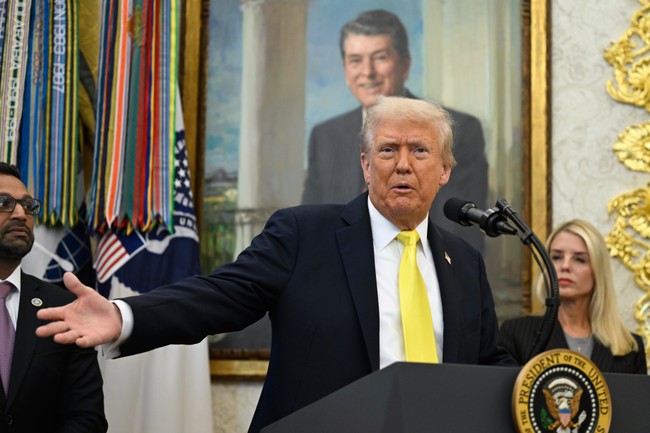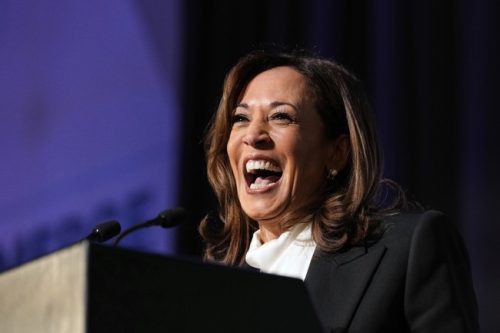The Senate faces a standoff as the Schumer Shutdown drags into its thirtieth day, and President Trump has urged Republicans to use the “nuclear option” to scrap the filibuster and pass funding. This article lays out how the fight unfolded, the political calculation in the Republican conference, and the risks critics warn would follow if the filibuster is eliminated. It includes direct quotes from the president and analysts who warn that changing Senate rules could reshape Washington for years.
Republicans initially resisted altering Senate procedure, with reports early in the shutdown saying GOP leaders had not seriously discussed scrapping the filibuster. That caution made sense: the 60-vote threshold has protected smaller majorities and forced compromise for decades. But as the shutdown stretched on, pressure increased inside the GOP conference to find an endgame that forces funding through.
We are now on day 30 of the Schumer Shutdown, with Democrats refusing to pass a clean continuing resolution despite public frustration and mounting economic strain. The shutdown began when Majority Leader Chuck Schumer and his allies refused to accept the GOP’s funding terms, and Republicans argue that Democrats are leveraging the impasse to achieve policy gains. Conservatives see the delay as a calculated strategy rather than an accidental stalemate.
And President Trump is now calling on Senate Republicans to nuke the filibuster and end the shutdown.
Trump calls for nuking the filibuster: pic.twitter.com/vOuar8FzgS
— Katie Pavlich (@KatiePavlich) October 31, 2025
In a lengthy post on Truth Social, the president recapped his trip to Asia and urged a hard line in Washington, praising some GOP leaders while blasting the opposition. He praised the work of certain Republican leaders but labeled the Democratic leadership as reckless in their tactics. He ended his post with a direct call to action for Senate Republicans.
“Because of the fact that the Democrats have gone stone cold crazy, the choice is clear — initiate the ‘nuclear option,’ get rid of the filibuster and make America great again!”
That declaration immediately sharpened the fight inside the Republican conference, where many lawmakers fear altering the filibuster will cost short-term leverage for long-term stability. For years Senate Republicans argued the filibuster benefits their side by forcing bipartisan coalitions and slowing transformational agendas. Now some rank-and-file members sense the political urgency of ending the shutdown and are weighing whether breaking procedure is justified.
The directive — which came after Trump returned from several days abroad — is likely to upend efforts on Capitol Hill to bring an end to the weekslong funding impasse. And it immediately ratcheted up the pressure on Republican leaders, who have adamantly opposed eliminating the 60-vote threshold for passing legislation as a way to end the shutdown.
Top GOP lawmakers have long argued for keeping that threshold in place, asserting that the filibuster benefits Republicans — and will serve as a key safeguard against Democrats passing transformative legislation the next time they’re in power.
History looms large in this debate: Democrats in 2013 narrowed filibuster protections for some judicial nominations under Harry Reid, and Republicans later extended that precedent to Supreme Court picks when they held power. That turnabout is central to the GOP worry that a one-way rule change can be used against them later. Many conservatives point to that history as a cautionary tale that short-term wins can create long-term harm.
Commentators on the right warn the shutdown is a deliberate prompting to bait Republicans into scrapping the filibuster, claiming Democrats prefer a scorched-earth tactic that forces a constitutional clash. That argument suggests the left is counting on procedural collapse to pass sweeping measures once the threshold falls. Republicans are being asked to decide whether preserving norms is worth losing the fight now.
This rule change seems to have encouraged Democrats to go for broke with this shutdown strategy: By simply refusing to participate in the normal legislative process, ostensibly holding out for things popular among their base, and then gaslighting the American people about their machinations, the Democratic minority is egging the Republican majority into eliminating the filibuster for them.
Congressional Republicans are already starting to sniff at the bait. Wednesday, the Hill carried a story that the Senate GOP is starting to discuss “filibuster reform” and Pennsylvania Democrat Sen. John Fetterman is encouraging Republicans to do so.
Republican leaders must weigh political optics as well as governance. Opponents of the nuclear option argue that changing the rules could cost the GOP credibility in future fights and strip away a tool that prevents majoritarian overreach. Supporters counter that when one side refuses to negotiate and the country is hurt, extraordinary measures are necessary to restore functioning government and accountability.
Some conservatives believe using the nuclear option risks handing Democrats a new playbook, while others view it as the only reliable route to reopen government and stop the political gamesmanship. The debate is not just tactical; it is a judgment about what institutions are for and how far a majority should go to force its will. That philosophical difference is fueling private and public arguments inside the GOP.
As the Senate prepares to return to session, the clock is running on a decision that could redefine how Washington operates. Legislators will face pressure from voters and donors on both sides, and leaders must choose whether to hold the line on norms or to change them to break the immediate impasse. The outcome will shape the next chapter of legislative politics.
Editor’s Note: The Schumer Shutdown is here. Rather than put the American people first, Chuck Schumer and the radical Democrats forced a government shutdown for healthcare for illegals. They own this.






